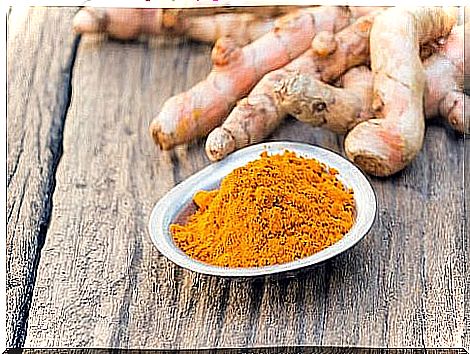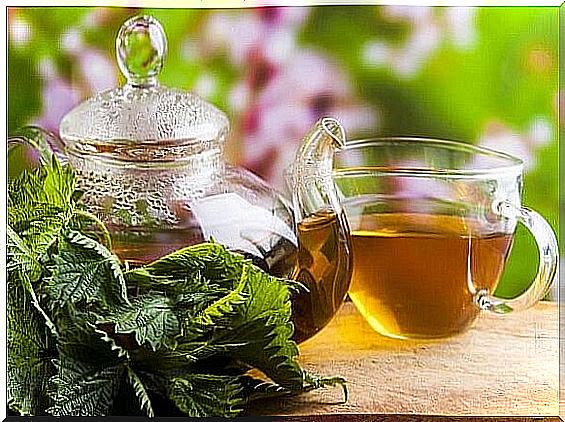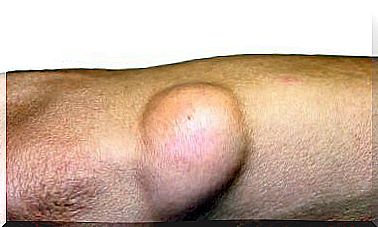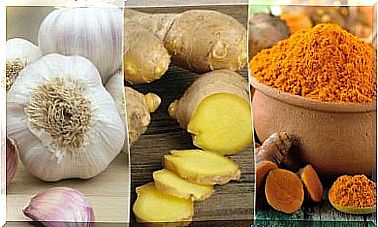7 Natural Remedies To Combat Rhinitis
Rhinitis is a common condition. It is due to inflammation of the mucous lining of the nose. It is accompanied by symptoms such as sneezing, itching, and nasal congestion.
This nasal condition occurs when you inhale substances that trigger allergies, such as dust, pollen, and some chemicals. In this case we speak of allergic rhinitis. But, it can also arise as a reaction to cold environments or the consumption of foods that cause intolerances. In that case it is non-allergic rhinitis.
Read also Nasal strips to breathe better: do you know them?
Natural remedies to treat rhinitis
We are going to share 7 natural remedies that help treat rhinitis.
1. Turmeric

Turmeric is a spice with antioxidant and anti-inflammatory properties that help control rhinitis symptoms. In addition, it blocks the production of immunoglobulin E, a substance to which allergic reactions are attributed.
How to use it?
- You can include turmeric in your favorite dishes.
- You can also take it as an infusion: a teaspoon of turmeric in hot water, up to 2 times a day.
2. Ginger
Ginger is a natural root with anti-inflammatory properties. Helps relieve congestion and irritation caused by rhinitis. Gingerol, its active principle, reduces nasal secretions and continuous sneezing.
How to use?
- First, add a teaspoon of the grated root to hot water
- Let stand and consume up to 2 times a day.
- You can also incorporate ginger into your smoothies and natural drinks.
3. Garlic

Garlic contains a natural antihistamine that helps reduce allergic rhinitis significantly. In addition, it contains a sulfur compound that exerts antibiotic and anti-inflammatory effects.
How to use?
- Consume a crushed garlic clove on an empty stomach.
- You can also include garlic powder in salads and soups.
- Another option is to prepare garlic tea: Infuse a crushed clove and sweeten with honey.
4. Apple cider vinegar
Apple cider vinegar has antibiotic and antihistamine properties that reduce the intensity of nasal congestion and headaches.
In addition, its essential nutrients enhance the immune response against allergy triggers.
How to use?
- Add a tablespoon of apple cider vinegar to a glass of warm water.
- Consume this drink 2 or 3 times a day, until the allergy is controlled.
5. Nettle

Nettle is one of the plants with anti-inflammatory properties that is used to treat allergic rhinitis and other stationary conditions.
Its antihistamine action blocks the agents that trigger this immune response. Plus, it provides quick relief from congestion, sneezing, and itching.
How to use it?
- Prepare an infusion with a tablespoon of the dried leaves of the plant and, if you like, sweeten it with a little honey.
- Consume it 2 or 3 times a day until the symptoms disappear completely.
- This remedy is not suitable for pregnant women or young children.
6. Green tea
Green tea is one of the natural supplements that can help curb the reactions caused by rhinitis. It has antihistamine and anti-inflammatory substances that calm congestion, nasal irritation and excess mucous secretions.
How to use?
- First, put a tablespoon of green tea in hot water
- Let it sit until it is well concentrated.
- Consume it up to 2 times a day.
- You can also ingest it in extracts or tablets.
7. Licorice
Licorice root helps control rhinitis discomfort due to its anti-inflammatory and soothing properties. It also has expectorant and antiviral qualities.
How to use it?
- Prepare an infusion and drink it 2 or 3 times a day.
- You can also chew its root.
Allergic rhinitis and non-allergic rhinitis
Remember that although they may have similar symptoms, they are not the same. Nonallergic rhinitis generally does not cause an itchy nose, eyes, or throat, which is associated with allergies such as allergic rhinitis.
Remember to see your doctor if you have severe and persistent symptoms, or signs that are not relieved by over-the-counter or self-care medications, or if you have bothersome side effects caused by over-the-counter or prescription rhinitis medications.









